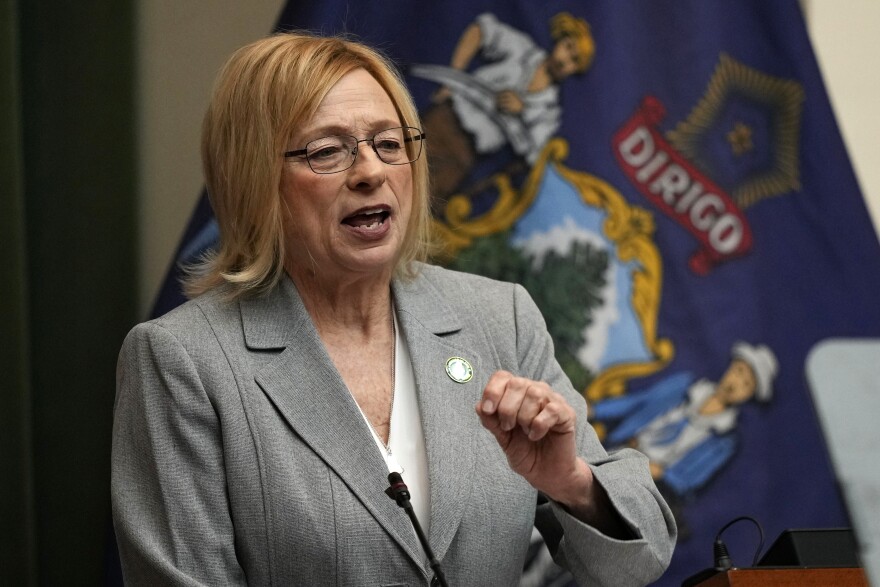Democratic Gov. Janet Mills announced Thursday that she’ll sign a sweeping paid family leave bill that recently cleared the Legislature.
Describing the proposal as imperfect but a good balance between Maine workers and employers, Mills’ announcement ends months of speculation about her intentions one of Democrats’ leading legislative priorities.
Business groups have opposed the measure, saying it’s more generous than leave programs in other New England states and that it will exacerbate absenteeism and workforce shortages.
They had held out hope that Mills would either craft a compromise or veto the measure.
But Mills says the bill addressed many of her concerns, providing modest worker benefits and financial stability. She says stakeholders have worked for months to make the leave program possible for employers, including accommodating seasonal employment and lowering the possible replacement wage.
"Those kinds of things made it more acceptable in my view, and more acceptable, I think, in the view of many businesses. We got everybody at the table. A lot of people at the table. And we had good brainstorming sessions that accomplished these compromise measures in that bill," Mills says.
Emily Ingwersen, who owns a small construction company, was on the commission to develop the benefits program. She said she's disappointed that the final bill includes compromises that reduce the amount of paid leave and benefit allotments, but said she's glad that it provides an option for many employers and employees that have no safety net now.
"Folks who are self-employed have an option to opt into this program," she said. "I've seen carpenters, plumbers, electricians who have had to work through injuries and life challenges. So I think a lot of self-employed people will opt in because it's quite affordable."
Ingwersen said she also believes that low-income earners should receive 100% of their pay in the leave program.
Selecca Bulgar-Medina, director of the Maine Small Business Coalition, said she has been doing outreach with small business owners throughout the state about the measure and has cleared up misinformation about its potential benefits.
"Small businesses are losing their valued employees and, in some cases, depending on the seriousness on the reason for leave, leave the workforce entirely. So paid leave actually helps provide some financial stability and structure for businesses and employees to weather those challenging times," she said.
Business groups who oppose paid family and medical leave say their concerns were not considered in the final version of the bill and they believe it will result in new costs and workplace difficulties for many of Maine's 28,000 small businesses.
"Small business owners do provide leave to employees," said David Clough, state director of the National Federation of Independent Business. "Not in a way this law contemplates. I would say just about every employer in Maine is going to be hit with new costs and new workplace difficulties because of this new law."
The program is funded by a payroll tax split evenly between workers and employers that won’t be collected until 2025.
State startup costs are $25 million and included in a bipartisan spending bill expected to be approved next week.





